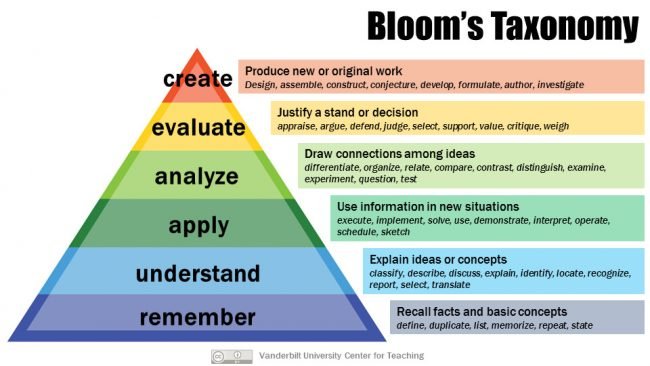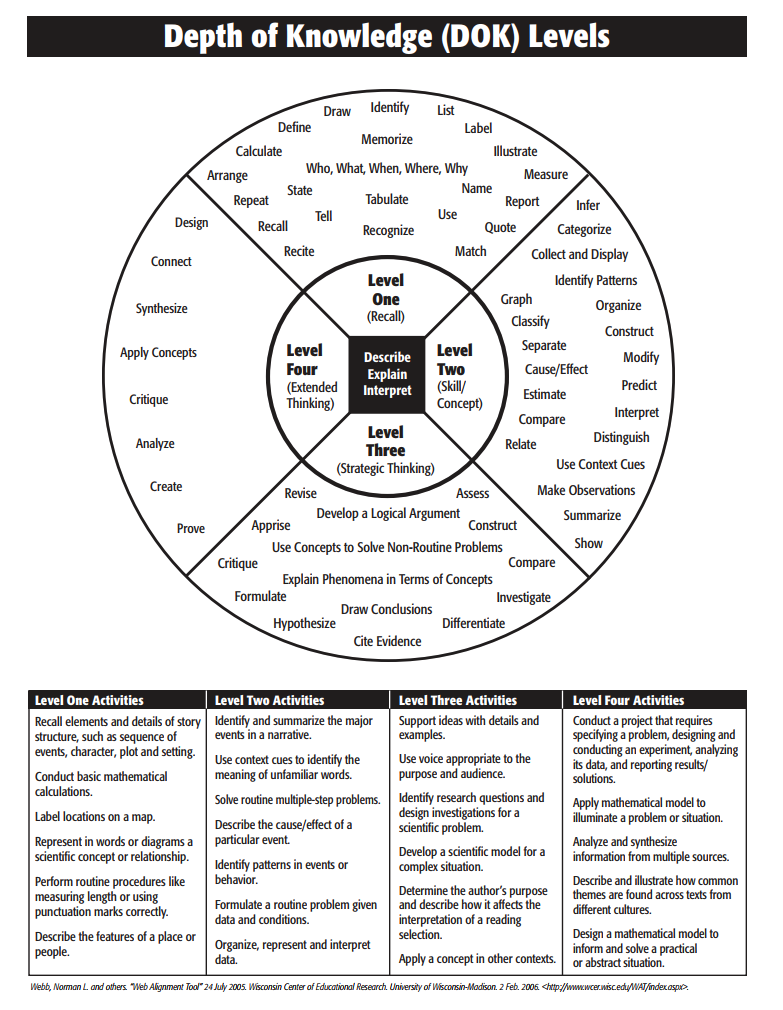We’ve built a highly-attributed database of high-quality content that is served up to students at massive scale. Part of managing a platform of this size, with tens of thousands of questions answered over 300M times, is deeply understanding not just our subject matter focus but also our ability to assess depth of knowledge and cognitive complexity.
In close partnership with school faculty and administrators that use Firecracker in their programs, we share many different views of student activity on our platform. One recent report analyzed student’s level of cognition using both Bloom’s Taxonomy (revised) and Webb’s Depth of Knowledge (DOK). If you are unfamiliar with either of these, Bloom’s was intended to write learning objectives for tasks with a focus on the verbs to classify levels of thinking using hierarchical verbs, while Webb’s DOK aims to evaluate thinking processes with a focus on cognitive demand to identify depth of knowledge using a description of activities at various levels. This short video provides a concise comparison of both models.

Bloom’s Taxonomy

Webb’s Depth of Knowledge
In our analysis of a summative assessment for one of our course exams, our items covered over 30 different USMLE Outline content areas across the following Bloom’s Taxonomy and Webb’s DOK elements:
| Bloom’s Taxonomy | Number of questions |
| Remember | 61 |
| Understand | 20 |
| Apply | 16 |
| Analyze | 18 |
| Evaluate | 23 |
| Create | 3 |
| Webb’s DOK | Number of questions |
| Recall/Reproduce | 60 |
| Skills and Concepts | 41 |
| Strategic Thinking | 20 |
| Extended Thinking | 20 |
Providing our school partners with analysis like this helps them better understand both the performance of their students and the efficacy of their curriculum.





